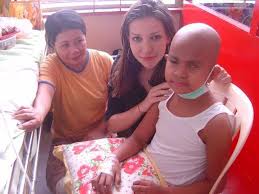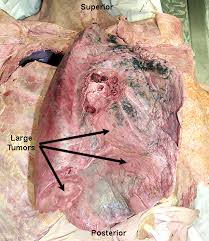 Our world-reknowned group of pediatric surgeons are experts in the treatment of children with cancer. Working in close collaboration with the pediatric oncologists, our pediatric surgeons provide surgical care to our patients. This includes resection of large tumors and placement of special central venous intravenous catheters for long-term treatment. Many of our patients come from distant parts of the country for our expertise in pediatric oncology surgery. Below are some of the conditions for which we provide clinical care.
Our world-reknowned group of pediatric surgeons are experts in the treatment of children with cancer. Working in close collaboration with the pediatric oncologists, our pediatric surgeons provide surgical care to our patients. This includes resection of large tumors and placement of special central venous intravenous catheters for long-term treatment. Many of our patients come from distant parts of the country for our expertise in pediatric oncology surgery. Below are some of the conditions for which we provide clinical care.
Working closely with Dr. Kate Matthay, chief of pediatric oncology and the world's foremost leader in neuroblastomas, Our group does surgery for children with neuroblastoma. Neuroblastomas are malignant tumors that most often occur in the abdomen from the adrenal gland just above the kidney. Less frequently they are found lower in the abdomen, pelvis, chest or neck. Surgery for these tumors can be quite complex, and our group has one of the largest experiences for operating on large neuroblastomas.
Wilms tumor
Wilms tumors are cancers of the kidney that only happens in children. All children with Wilms tumors need a multidisciplinary approach for treatment, including chemotherapy, surgery, and sometimes radiation. Our group of surgeons is expert in the surgical treatment of Wilms tumor. The surgical treatment for most Wilms tumors is removal of the tumor which includes removal of the affected kidney.
Hepatoblastoma
Hepatoblastomas are the most common type of pediatric liver cancer. Hepatoblastoma surgery usually requires removal of half of the liver, a complex operation. Working close with the pediatric oncology team, we coordinate the care of the patients with hepatoblastoma as most of these patients require both surgery and chemotherapy.
Other Conditions
Our group also provides expert care of children with ewings sarcoma, pulmonary metastases, rhabdomyosarcoma, saccrococcygeal teratoma, ovarian tumors, testicular tumors, mediastinal tumors, melanomas, as well as many other malignant and benign tumors.
Long Term Intravenous Catheters
One of the greatest needs that children with a diagnosis of cancer needs is special intravenous catheters called port-a-caths or broviacs. These special intravenous catheters are placed usually in a large vein in the chest or neck and go just next to the heart. They can be used for months or years for the children who need medications or blood draws for extended lengths. Our group of surgeons is expert in the placement of these central venous catheters using the most modern techniques including real-time sonographic guidance to minimize complications.

No comments:
Post a Comment